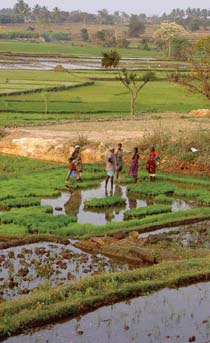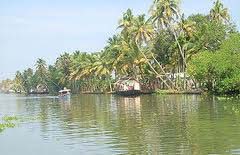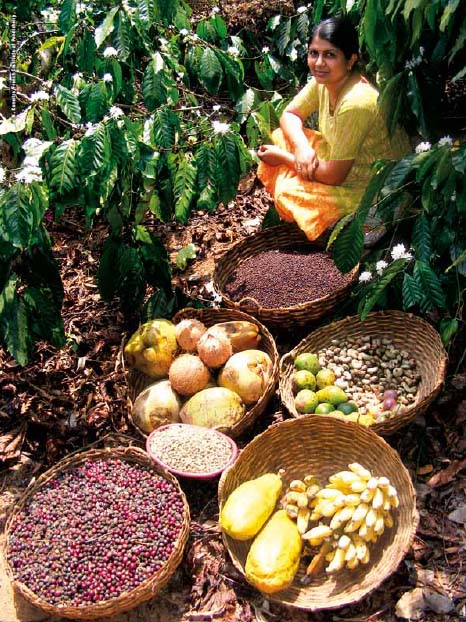Sustainability
Social equity and integrated water resources management – A background paper by Global Water Partnership
Posted on 31 Aug, 2011 04:10 PMIt provides an analytical framework that policy makers and water professionals can use to bring greater clarity to the issue of social equity in their local context.
Groundwater quality assessment of Jharia coalfield area in West Bengal - A case study in NISCAIR
Posted on 27 Aug, 2011 06:35 PMThis case study in National Institute of Science Communication and Information Resources (NISCAIR) by the Central Institute of Mining and Fuel Research (CIMFR), Dhanbad and the Geo-Environment Division (Environment Management Group) deals with groundwater quality assessment of Jharia coalfield area of West Bengal. The physiochemical characteristics of groundwater of the upper catchments of the coalfield were studied to evaluate the water quality.
Adaptive water resource management in the Lower Bhavani project command area in Tamil Nadu – A research report by IWMI
Posted on 25 Aug, 2011 11:07 PM
To what extent farmers and water resource managers already practice adaptive management and whether it is practiced in an optimal manner or could there be areas for improvement based on recent advancements in the theory of adaptive management are some of the questions that are particularly appropriate in the light of rapid changes in river basin water use and also in relation to basin closure.
This paper draws on the development and use of water resources in the Lower Bhavani Project (LBP), with the LBP reservoir and the 84,000 hectare (ha) LBP command area. The project diverts water from the Bhavani River, a tributary of the Cauvery River in Tamil Nadu.
Water quality study and cost-benefit analysis of rainwater harvesting in Kuttanad, Kerala
Posted on 25 Aug, 2011 02:23 PM This thesis by Christina Tang for the Center of Environmental Studies, Brown University deals with a study of water quality and attempts to ascertain the net benefits or costs from rainwater harvesting under a variety of scenarios for households in various water supply conditions.
This thesis by Christina Tang for the Center of Environmental Studies, Brown University deals with a study of water quality and attempts to ascertain the net benefits or costs from rainwater harvesting under a variety of scenarios for households in various water supply conditions.
Eighty percent of the 7,00,000 citizens of Kuttanad, a region in the coastal State of Kerala have no access to clean water. In Kuttanad, intensive untreated human sewage and agricultural activities have caused severe surface water contaminations. At the same time, other sources of freshwater are unreliable for drinking: groundwater is acidic due to the soil conditions and iron leaching; freshwater from public tap is infrequent; and water supply from private vendors is extremely expensive.
Restructuring of the Central Water Commission – Ministry of Water Resources invites comments on its proposal till September 30, 2011
Posted on 25 Aug, 2011 12:24 PM
The restructuring is being proposed primarily to adopt river basins as the fundamental block for integrated planning, development and management of water resources in the country.
Boundary concepts for interdisciplinary analysis of irrigation water management – A working paper by Peter Mollinga
Posted on 24 Aug, 2011 07:16 PMThe focus is concepts that capture the hybridity of irrigation systems as complex systems, and cross the boundaries of the natural and social sciences.
Payments for ecosystem services and food security – A report by Food and Agriculture Organisation
Posted on 24 Aug, 2011 06:08 PM Changing climate, loss of native forests, disappearance of biodiversity, water shortages, desertification, the reduction of natural soil fertility — all add to the scenario of a world with increasingly complex environmental challenges.
Changing climate, loss of native forests, disappearance of biodiversity, water shortages, desertification, the reduction of natural soil fertility — all add to the scenario of a world with increasingly complex environmental challenges.
The concept of Payment for Ecosystem Services (PES) has emerged as a challenge to the all-too-prevalent tradition of taking the Earth’s natural resources for granted. PES highlights a global continuum, illustrating the relationship between our lifestyles, the demands associated with our production and consumption patterns, and the effects those demands have on close or distant ecosystems.
Scope, structure and processes of National Environment Assessment and Monitoring Authority – A draft report of the Ministry of Environment and Forests
Posted on 24 Aug, 2011 01:10 PMThis report by the Indian Institute of Technology (Delhi) for the Ministry of Environment and Forests (MoEF) deals with the scope, structure and processes of the proposed National Environment Assessment and Monitoring Authority (NEAMA). The findings and recommendations of the project are based on an analysis of various research and committee reports, a critical review of the implementation of EIA notification 2006, CRZ notification 1991 & CZM Notification 2010, and a review of the international practices.
Sanitation as a business - A new spin on the challenge of sanitation operation and maintenance - A paper by Water for People
Posted on 24 Aug, 2011 11:34 AMThis paper published by the Water for People describes Sanitation as a Business, an innovative approach to operation and maintainance challenges in household sanitation improvements, by describing the case of the implementation of the approach in the context of Malawi, by Water for People. The paper argues that programs that build latrines have consistently struggled to have impact or reach scale, and have often distorted the market environment in ways that have undermined future sanitation development.
The paper emphasises the relevance of this approach in the context of developing countries such as India by stating that the world would not be able to achieve even half of the Millennium Development Goals for sanitation at current rates of installation and consequently is projected to miss the sanitation MDG by more than 700 million people. Among the twenty two percent of those without access to improved sanitation, the greatest challenge remains in Asia and India in particular.
Sanitation - The hygienic means of promoting health - Indian Journal of Public Health
Posted on 23 Aug, 2011 11:10 AMThis article published in the Indian Journal of Public Health highlights the importance of sanitation as hygienic means of dealing with health of populations and presents the history and the definition of sanitation and highlights t





